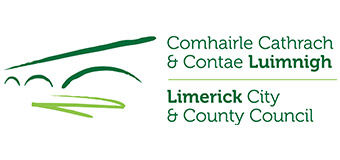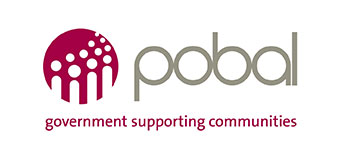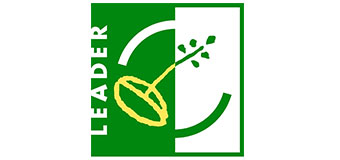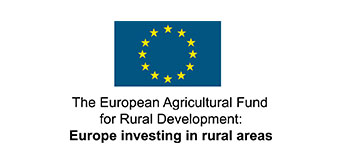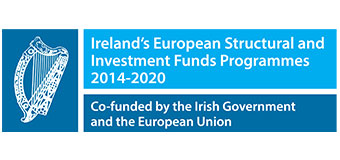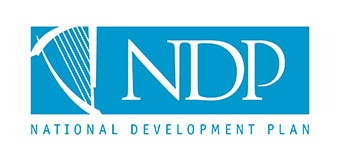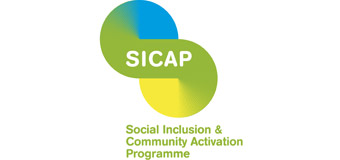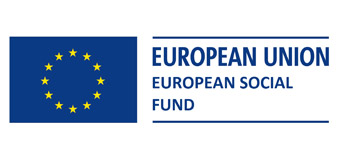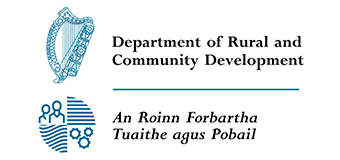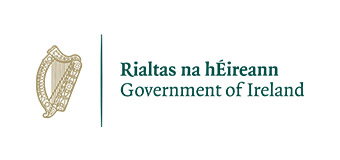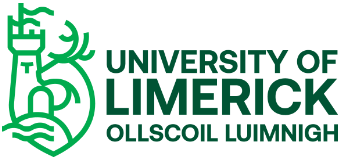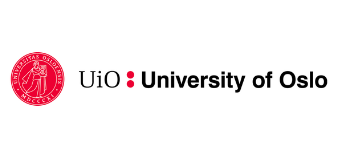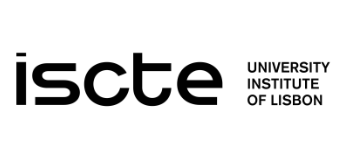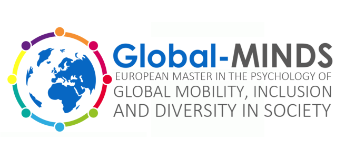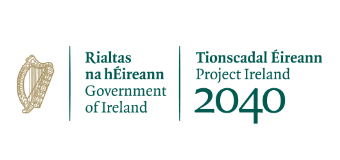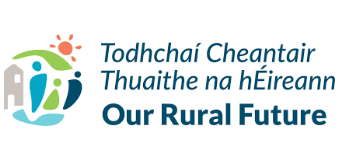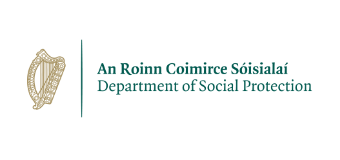Past Programmes
Since its establishment in 1996, West Limerick Resources has administered over thirty programme which have had a positive impact on many aspect of the West Limerick Community. Many of these programmes were run on a pilot basis where others were fixed term programmes which were replaced at the end of their term by new programmes with a similar focus. For further details on a number of the programmes which the company has administered in the past please expand the links below:
Local & Community Development Programme
The aim of the Local and Community Development Programme (L&CDP) is to tackle poverty and social exclusion through partnership and constructive engagement between Government and its agencies and people in disadvantaged communities. Under this programme, West Limerick Resources works with the community, in the community, targeting the most marginalised and promoting equal and active participation in employment, in learning and in all aspects of community life.
The L&CDP prioritises marginalised people and groups within the most disadvantaged communities, which means that it targets those furthest from education, training and employment, and those at highest risk of social exclusion. The programme works with the target groups and areas which have been identified through analysis of local need.
The Programme has four goals:
GOAL 1: To promote awareness, knowledge and uptake of a wide range of statutory, voluntary and community services.
Goal 1 of the Local and Community Development Programme aims to promote awareness, knowledge and uptake of a wide range of statutory, voluntary and community services. The objectives of this goal are as follows:
- Raise awareness and knowledge of services in the local community
- Develop and sustain strategies and mechanisms for improved access to local services
- Develop and sustain strategies and mechanisms to better coordinate local services
Under this goal West Limerick Resources engages with local groups, both existing and emerging, to animate and build their capacity through the provision of information. Our community development workers work on the ground in the local communities to investigate their needs and address disadvantage and social exclusion. Through this engagement in pre-development work we aim to increase awareness and support communities to gain access to the various supports and services available.
For further information contact one of our community development workers.
GOAL2: To increase access to formal and informal educational, recreational and cultural development activities and resources.
Goal 2 of the Local and Community Development Programme (L&CDP) aims to increase access to formal and informal educational, recreational and cultural development activities and resources. The objectives of this goal are as follows:
- Work with providers to improve access to a wide range of opportunities
- Increase awareness and support access to develop opportunities for learning and development
Under this goal West Limerick Resources pursues a strategy of supporting families, and parents in particular, to develop their capacity through participation in local activities and services that promote positive involvement within families and communities. Work under this goal includes the continued development of family support projects, parent and toddler initiatives, pre-school projects, after-school projects and developmental play initiatives.
In addition West Limerick Resources contributes to the enhancement of the quality of life of marginalised individuals and groups by supporting their inclusion in social, educational, recreational and cultural activities including community education, local training initiatives, youth initiatives and various other initiatives such as the Towards Occupation Programme.
For further information contact one of our community development workers.
GOAL 3: To increase peoples’ work readiness and employment prospects.
Goal 3 of the Local and Community Development Programme (L&CDP) aims to increase the work readiness of people to enter the labour market. The objectives of this goal are as follows:
- Develop and sustain a range of services to support, prepare and assist people to enter the labour market
- Develop and sustain strategies with local enterprises to increase local employment prospects
- Develop and sustain strategies to increase local self employment prospects
- Acknowledging the high levels of unemployment in all areas of West Limerick, West Limerick Resources supports individuals in accessing suitable and sustainable employment and self-employment through a number of initiatives including:
- The Rural Employment Service
- The Training and Progression Fund
- Enterprise Mentoring Support
- Community Enterprise and Socal Economy
- Towards Occupation Programme
For further information contact one of our community development workers.
GOAL 4: To promote engagement with policy, practice and decision-making processes on matters affecting local communities.
Goal 4 of the Local and Community Development Programme (L&CDP) aims to promote engagement with policy, practice and decision making processes on matters affecting local communities. The objectives of this goal are as follows:
- Promote dialogue between funders, providers and local communities
- Develop and sustain opportunities for communities of place and interest to identify issues and voice concerns
Equality of access and opportunity are core principles of the community development strategy pursued by West Limerick Resources. Travellers and other minority groups who are experiencing cumulative disadvantage are targeted for support as are those experiencing rural isolation and disadvantage. Established and emerging networks are encouraged and supported to represent those experiencing marginalization.
For further information contact one of our community development workers.
The Local and Community Development Programme (L&CDP), which integrates the former Local Development Social Inclusion Programme (LDSIP) and the Community Development Programme (CDP), is managed by Pobal on behalf of the Department of Community, Rural and Gaeltacht Affairs. It forms part of the National Development Plan 2007-2013.
Digital Switchover Programme
The aim of Community Outreach Digital Switchover Programme is that those who are least likely to make the switchover to a digital television service will be enabled to do so before the switching off of the analogue signal in October 2012.
This target group are likely to:
● be older
● have less formal education
● be farmers or live in rural areas
● be disadvantaged, e.g. have a disability, live alone
● have few social networks.
In order to achieve this it is hoped to mobilise people from community and voluntary organisations to identify and reach people they know in their communities who are in danger of being left behind, and assist them in making the switch to digital TV before 24th October 2012. The core approach is that the target group are reached through people that they already know and trust and are well-placed to advise them. These people will talk to them on a one-to-one or one-to-few basis to make them aware of the need to make the switch and their options, and encourage and assist them to do so.
The objectives of the Programme are that members of the target group are:
1. Aware of the importance of making the switchover and the consequences of not doing so,
2. Aware of the options available to them to make a successful switchover,
3. Able to make a decision and exercise that decision.
The Community Outreach Digital Switchover Programme is managed and coordinated by The Wheel in conjunction with Irish Rural Link, with funding from the Department of Communications, Energy and Natural Resources.
Millennium Partnership Fund for Disadvantaged
West Limerick Resources received a letter from The higher Education Authority on 12th July 2010 stating that the National Access Office and POBAL were informed by the Department of Education and Skills of the withdrawal of the Millennium Partnership Fund. This was announced as part of Budget 2010. Therefore West Limerick Resources will no longer be administrating this fund.
Through the Millennium Partnership Fund, West Limerick Resources provided financial support to a selected number of college students each year. This fund, which was announced by the Minister for Education & Science in September 2000, aimed to “support students from disadvantaged areas with regard to retention and participation in further and higher level education courses.”
The fund provided small-scale grants for students who are in need of additional assistance in completing Third Level Education and was designed to help cover expenses such as fees, books, travel, rent for students living away from home, or other necessary resources.
Financial support however was just one element of the Millennium Partnership Fund. West Limerick Resources also offered free advice to students on various aspects college life. Over the last two years we utilised a portion of our Millennium funding to provide support and guidance for students through the services of a qualified guidance counsellor who was available the students throughout their academic year.
With a limited pool of money in the fund, a fair assessment procedure is very important in deciding on grant allocations. Priority is given to students in their first or second year that may be managing money and living away from home for the first time. In order to be eligible for the fund students must:
- Be resident or have their family home located in the geographical area covered by West Limerick Resources
- Be an EU citizen, have official refugee status or have been granted humanitarian aid to remain in the state
- Be registered on a recognised further/third level course for the academic year 2009/2010
- Be in receipt of a local authority, County Council or VEC maintenance grant (Students not in receipt of this grant may be eligible in exceptional circumstances)
- Provide receipts for funding and official documentation to back-up their application.
The Millennium Partnership Fund 2009-2010 is funded by the Irish Government and part financed by the European Union under the National Development Plan 2007-2013.
Volunteer Support Service
West Limerick Resources Volunteer Support service aimed to enhance the level of volunteering to all sectors of the community and to encourage and promote the growth of this valuable asset. The role of the Volunteer Support Service was to facilitate the introduction of potential volunteer to organisations seeking people and to provide training, information and support to organisations on volunteering matters.
As West Limerick Resource’s work is rooted in the community, the company has been crucially aware of the needs of volunteers and volunteer-involving groups since its foundation in the mid-1990s. In 2005, Noel Ahern TD, Minister of State at the Department of Community, Rural and Gaeltacht Affairs announced ring-fenced funding to support volunteering, both for local area partnerships and for city and county development boards. In early 2006, WLR was granted funding to develop a volunteer support service for the period 2006 – 2009.
Our Activities included:
- Promoting Volunteering
- Facilitating and supporting volunteer recruitment for community groups
- Linking people with volunteering opportunities
- Providing Training and support to community and voluntary organisations
- Providing information on Volunteering
- Running a Corporate Volunteering Initiative
- Operating a dedicated website devoted to volunteering in Limerick http://www.volunteerlimerick.ie
For further information contact:
Paul Moriarty – Volunteer Support Worker
Email: pmoriarty@wlr.ie
Website: http://www.volunteerlimerick.ie/
Local Development Social Inclusion Programme
Through the Local Development Social Inclusion Programme or LDSIP West Limerick Resources employed community development officers who worked with the community, in the community, targeting the most marginalised and promoting equal and active participation in employment, in learning and in all aspects of community life. We targeted our strategy at those who faced the most acute barriers to participation, including people with disabilities, the unemployed, disadvantaged young people and marginalised groups such as Travellers, migrants and lone parents.
The guiding principle of the programme was to target resources on individuals and groups who for various reasons are marginalised and disadvantaged within society and to promote their involvement in planning and decision making that could have a positive effect on their lives, their welfare and their future. Ultimately it was our hope that lessons learned at a local level can be mainstreamed and contribute to the policy making process at national level.
The LDSIP was divided into three measures:
Measure A: Service to the Unemployed – aimed to improve the options of long-term unemployed people
STRATEGIES:
- To support men and women in accessing gainful sustainable employment by linking them to opportunities in appropriate training and education, work experience and enterprise.
- To enhance the provision of appropriate supports for individual and community enterprise development.
- To use innovative and specific initiatives to engage and support smallholders in exploring appropriate and sustainable on and off farm options to increase household income.
The main objective was to improve the options of long-term unemployed people and those most distanced from the workforce, to re-enter the labour market. This included the operation of the Rural Employment Service which worked on a one to one basis with individuals and with groups who find it difficult to access meaningful employment through the development of career plans, training and ongoing support. We also provided eligible small businesses and entrepreneurs with enterprise development mentoring and Start your own Business courses.
Measure B: Community Development – aimed to enhance the ability of people living in disadvantaged areas to participate fully in local development opportunities
STRATEGIES:
- To support the development of support structures and networks for community and special interest groups to build their capacity to influence their own development and impact on mainstream implementation and policy
- To promote the inclusion of the socially excluded in community activities and to broaden the agendas of community groups so that they become more inclusive
- To develop awareness of the cultural, personal, financial, family and structural barriers which cause poverty and social exclusion and promote equality of opportunity and equity for individuals and groups
- To support research activities that identify and analyse local needs and priorities in relation to minority groups.
Our community development officers worked on the ground with local community and voluntary groups to investigate their needs and to address disadvantage and social exclusion. We supported the development of inclusive local representative structures and establish new community based projects and initiatives.
Measure C: Community Based Youth Initiatives – aimed to enhance the social, personal and educational development of young people who are at risk of leaving school early or who have already left.
STRATEGIES:
- Target and enhance the social & personal development of young people who are at risk of leaving school early, who have left school early, who are experiencing difficulties or underachieving at school
- Ensure an adequate range of supports are available locally from early childhood to young adulthood
- Develop and support Initiatives to enhance the capacity of parents and teachers to meet the needs of disadvantaged youth
Working in conjunction with a number of other agencies including Foroige, the County Limerick VEC and the Limerick Youth Service, West Limerick Resources supported a number of activities within the community targeting young people who are at risk of leaving or have become early school leavers.
Salmon Community Support Scheme
The Minister for Communications, Energy and Natural Resources established a Community Support Scheme (closed as of 2009) of up to €5 million for areas affected by the cessation of the mixed stock salmon fishery in sixteen fishery districts. West Limerick Resources delivered the scheme in our catchment area and received an allocation of €200,000.
The scheme was not directed at commercial salmon fishing license holders (who had the opportunity to avail of payments from the Salmon Hardship Scheme) but rather at the development of additional economic opportunities for crews and employees in the procesing and ancillary sectors in communities where commercial salmon fishing was a well established activity and where its withdrawal impacted on the economic fabric of the community.
The following activities were eligible for grant aid:
- Re-training of labour force previously involved in commercial salmon fishing
- Re-training of labour force involved in ancillary activities associated with commercial wild salmon fishery
- Diversification into non salmon fishing economic activity
- Diversification from ancillary activities previously dependant on salmon fishery
- Education and employment preparation for the labour force at (1) and(2) above
- Projects to promote the quality of the costal environment
- Any other community project identified during the course of the scheme.
Migrant Support Service
West Limerick Resources operated the Migrant Support Service on a pilot basis for a twelve month period which came to an end in March 2008. Its aim was to promote cross-cultural integration within our community by improving opportunities for the integration of newcomers to West Limerick with existing members of the local community. These actions included job-seeking support services, English classes, community-based initiatives and information evenings that targeted the migrant community.
The service was established with the support from the Fund to Support the Integration of Legally Resident Immigrants which was set-up in 2006 by the Reception and Integration Agency of the Department for Justice, Equality and Law Reform. In 2007 WLR was one of just fifteen partnership companies that successfully secured part of the €2 million funding which was designated for partnership companies. Through the Migrant Support Service we aimed to initiate local strategies that respect cultural difference and promote the involvement of non nationals in local communities.
Rural Development Programme 2007-13
The Rural Development Programme, also known as LEADER, is designed to target resources to support improvements to the quality of life in rural areas and the diversification and development of the rural economy. West Limerick Resources was allocated almost €10million under the 2007-2013 programme which is worth €425 million nationally by the Minister for for Community, Rural and Gaeltacht Affairs, Eamon O Cuiv,
A number of areas are targeted under this Programme including:
- Increasing economic activity in the rural economy
- Supporting the creation and development of micro-enterprises in the rural economy
- Encouraging rural tourism based on the sustainable development of natural resources and the cultural and natural heritage
- Improving access to basic services for rural dwellers
- Regenerating rural villages by improving economic prospects, community relations and quality of life
- Maintaining, restoring and upgrading the natural and built heritage
West Limerick Resources administered the Rural Development Programme 2007-2013 on behalf of the Department of Community Rural and Gaeltacht Affairs. This Programme is financed by the Irish Government under the National Development Plan and part-funded by the EU under the European Agricultural Fund for Rural Development.

